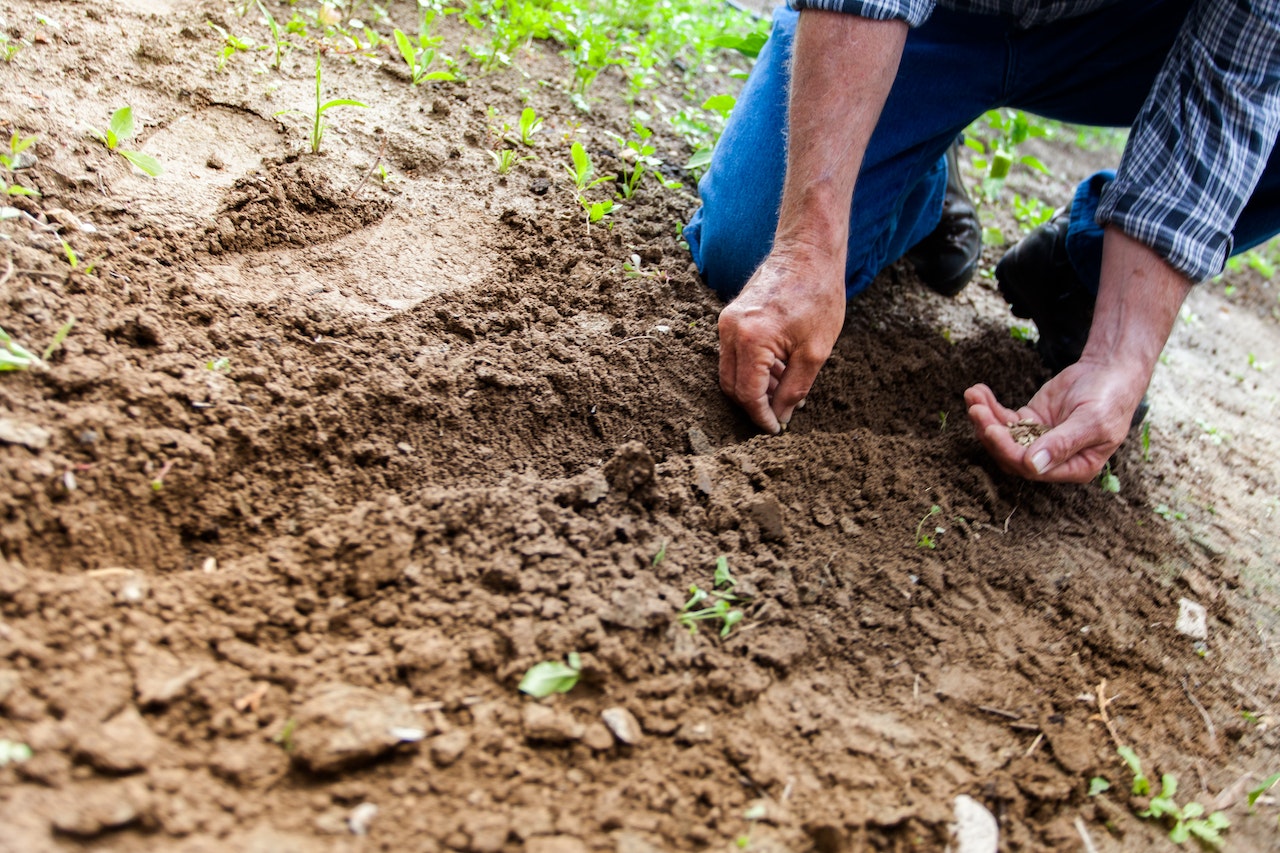This is a sermon that I preached on Sunday, 7/23/23, at Berkeley Friends Church. The scripture reading for this sermon was: Romans 8:12-25 & Matthew 13:24-30, 36-43. You can listen to the audio, or keeping scrolling to read my manuscript. (The spoken sermon differs from the written text.)
In our scripture reading from Romans this morning, Paul is wrestling. He’s wrestling with the disconnect between the life and promise and transformation that he has from God in the Spirit, on the one hand, and on the other hand his own inability to apply this inward reality in his daily life. To put this, perhaps, in a Quaker way: Paul is convinced that the inward light of Christ is present within him to guide him, but he keeps failing to live up to the light that he has.
But he does have the light. And he tells us that we have the light, too. Whatever happens, no matter how badly we fail, the Spirit of Christ is present with our spirits. The light shines in our darkness. The offer of transformation, of resurrection, lies within us and can be made real on the outside as well as within.
Paul says that when we cry out to God, calling him “Abba” (“Papa”), Father, this is the Spirit of God acting through us. It is the presence of God saying that we are his chosen, we are his children; he will never abandon us. In the words of Paul, this presence of the Spirit within us makes us sons and daughters by adoption – co-heirs with Christ to the promises of God.
Why are these promises important? Like us, Paul and the early church were suffering. Well, not like us, exactly. The sufferings of the early church were in many ways very different from ours. As I spoke about in my last sermon, the early church was facing rejection, persecution, even violence and death at the hands of a society that rejected them and their message. Some Christians ended up being martyred – literally fed to wild animals on their culture’s equivalent of Netflix! So no, we’re not suffering exactly like the early church did.
But we’re suffering. Like Paul, we’re wrestling with what he calls the “body of death.” We struggle through our daily lives in a society that is so trapped, so divided, so anxious. We suffer in a society of disconnected parallel consumption. We yearn for more in a culture where small talk is common, but deep connection is rare. We live in a society where, via digital platforms, we can connect with people all over the world and have dinner delivered to our door – but when’s the last time you had a real live person over to your house for dinner?
In this world of isolation, anxiety, and disconnection, we suffer. We suffer along with the creation, subjected to futility, as Paul puts it. We groan inwardly, sensing the Spirit of adoption that has been put into our hearts by God. We groan as we feel the huge contrast between that life of resurrection and our own drab, compromised lives – getting by in 21st century America. Like Paul and the early church, our response to this existential angst is hope: Hope that the light of Christ within us might win out over the body of death.
We hope for what we do not see. We wait for it. We seek it. In the words of the Friends Committee on National Legislation:
We seek a world free of war and the threat of war.
We seek a society with equity and justice for all.
We seek a community where every person’s potential may be fulfilled.
We seek an earth restored.
Creation groans together with us; it suffers together with us in the pains of labor. We groan together for adoption, for transformation, for an earth restored: The redemption of our bodies.
This is an important part of what it means to be a Christian, what it means to be a Quaker: We wait for God in hope. We wait for the Spirit of adoption that we already sense in our hearts. We wait for the redemption of our bodies, the transformation of our lives. We wait in hope: For something we cannot see, but which we have come to trust is here; for a life and power that is coming, is emerging, despite all appearances.
In our gospel reading this morning, Jesus assures us that the promise will be fulfilled. There will be a reckoning. The creation will not always be groaning. The children will be born. We will be adopted, transformed, resurrected. Jesus promises that there is more to the world than meets the eye. Our anxiety, our restlessness, our suffering will not go on forever.
But in the meantime, here we are. Living in hope. Groaning with the creation. Waiting on the Spirit. Crying out, “Abba! Father!” Growing like wheat. Waiting to be gathered.
